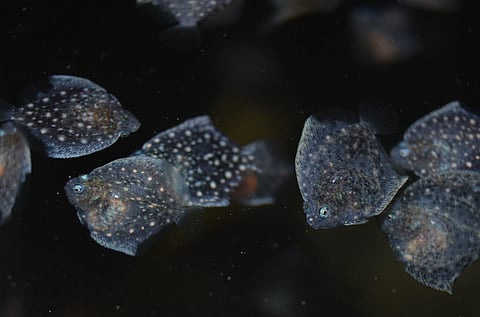

The Aquaculture Cluster Technology Center (CETGA in its Spanish acronym) was founded in 2002 with the aim of working in the fields of sustainability, animal welfare, and food sovereignty, promoting research, the use of new technologies, and advancing knowledge in aquaculture. This is the framework for the 'Aquaculture 4.0' project which, by applying vision technologies and artificial intelligence (AI), seeks to improve the production chain of the individuals of a given species in aquaculture facilities.
Funded by the Ministry of Agriculture, Fisheries and Food of the Government of Spain, the project, which began in 2021 and has a budget of more than EUR 260k, and will be completed in the second half of 2023.
As mentioned, 'Aquaculture 4.0′ aims to improve the production chain of the individuals of a given species in aquaculture facilities, from the seeding of the larvae until they reach the distribution chain. With this improvement, the project seeks to maximize the production of the tanks and improve the quality of the final product while respecting the animals' welfare at all times.
To achieve this, the researchers of the project, in which CETGA collaborates with the Polytechnic University of Madrid, are applying vision technologies and artificial intelligence, which has led its promoters to describe the 'Aquaculture 4.0' project as "the ChatGPT of aquaculture."
Among the activities that have been carried out within the project are the analysis of tank biomass; the monitoring of fish welfare and optimal conditions of their environment based on hyperspectral image analysis; the incorporation of AI techniques to extract knowledge to facilitate decision-making in the different production plants; and the validation of results in real production environments.
In addition, 'Aquaculture 4.0' is also being used to test new equipment and techniques to evaluate the number of fish and the biomass of the stock. This way, they will later be able to begin studying fish behavior for modeling, to which, in the future, they will add artificial intelligence functions.
CETGA has been operating for 22 years with projects that seek sustainability, animal welfare and guarantee food sovereignty in a sector declared strategic by the European Union. This pioneering project has consolidated it as a world reference in the field of innovative and sustainable aquaculture, although it is not the only one developed in its facilities in Ribeira, Galicia, Spain.
The Aquaculture Cluster Technology Center has been an active part of the European aquaculture technology platform for years and leads and coordinates several international projects. For example, it was the coordinator of the aquaculture area in the Spanish and Latin American program to promote research in Latin America with Spain, Portugal, and all of Latin America. Or, recently, it launched the project MIVALI against Aeromas Salmonicida in turbot in collaboration with Stolt Sea Farm, Cenavisa, the University of A Coruña, the Spanish Government, and the European Union
Moreover, CETGA has been requested by international organizations such as the FAO (Food and Agriculture Organization of the United Nations), which has contracted it for its advice and services. Likewise, since its foundation in 2002, CETGA receives more than 50 international visits per year to its facilities to learn about its developments and research.
The staff of the technology center is currently made up of 26 people. Of them, more than half are researchers, and eight hold PhDs. It should be noted that most of the research positions are occupied by women, in a clear commitment of the center to female talent.
The Aquaculture Cluster Technology Center, CETGA, is a private research center, whose mission is to offer innovative solutions to companies for the improvement of products, processes and systems, improving competitiveness through R&D and Industry 4.0, thus creating new business opportunities. It carries out projects financed directly by other companies or through public funds obtained through different competitive calls both nationally and internationally, thus developing activities in various areas of knowledge focused on the aquaculture sector.
